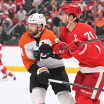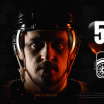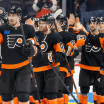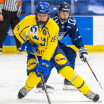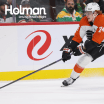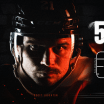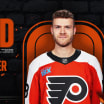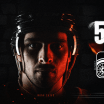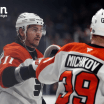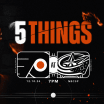After his media conference call on Monday with Flyers beat writers, general manager Chuck Fletcher did a one-on-one interview with Flyers website contributor Bill Meltzer to talk a little more in-depth about hockey-related issues surrounding the team during the NHL pause. Following are some of the highlights of the discussion.
EXCLUSIVE: One-on-One with Chuck Fletcher
Fletcher goes in-depth about hockey-related issues surrounding the team during the NHL pause
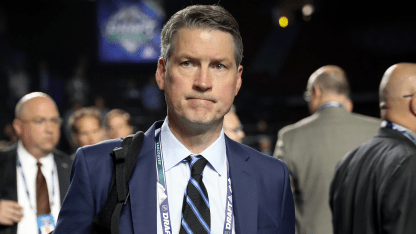
Conditioning Issues
Q: During your conference call, you discussed how players nowadays know how to stay in excellent physical condition during an off-season and that you felt a two-week training camp would be sufficient for players to prepare to play games again. Is there any concern, though, that with rinks closed around North America during the pause, players would be more susceptible to the types of injuries that are more common in camp and early in the season than a typical stretch drive or playoffs?
A: In a word, yes. There are two different types of conditioning: overall physical fitness and game conditioning. You are right that groin pulls and other soft tissue injuries tend to be more common in camp. What I can say to that is that we've come a long way over the years in terms of the sports science and knowing how to reduce some of the risks; not pushing too much and too soon, and working up to being game ready. Realistically, there probably would still be a few more of those types of injuries than you'd typically see this time of year. I'm not sure if there's any way to completely avoid it, but every team and every player will be in the same boat because of the unprecedented circumstances we have right now.
Q: On a related note, I know that [NHL deputy commissioner] Bill Daly and others have discussed the vital importance of getting in a full 82-game schedule for 2020-21 and, hopefully, beginning the season as close to being on-time as possible. My question is this: At the end of any season, whether a team's season ends in April, May, or June, every team has at least a few players who are nursing injuries and there are usually at least a few who require surgery. Right now, with elective surgeries being discouraged or unavailable and there are proposals for the Cup to be awarded late in the summer, would there be a risk of players not having enough off-season time to recuperate and then ramp up for the next training camp?
A. That's a really good question. It's one of the issues that the League, the Players' Association, and the teams have to ponder if and when we get to the stage of determining the timelines for the remainder of this season and the start of next. For right now, what I can say is that our players are currently getting extended recuperation time that would not typically be available this time of year. That should be helpful for working through injuries that can be resolved without surgery. I said this earlier, in another context: If you have time, use it.
Q: If things work out to where the playoffs would begin immediately after mini-camps, Is it possible to essentially go 0-to-60 instantly; go from training camp conditions right into the shift-in and shift-out intensity of a playoff series?
A: Under ideal circumstances, we definitely would want to play as many games as possible; not just conditioning wise, but in terms of execution and getting every back in sync. There's only so much you can simulate in practice conditions. But, again, every team is in the same boat. It would a tremendous development if it works out to where we're able to get in as many games as possible. Unfortunately, right now, it's all hypothetical. We're all hoping that we'll get to a better place in this world, where we'll be able to come back and play hockey. Right now, we're not in a stage where we can make any decisions about formats or scheduling. From a hockey standpoint alone, though, you'd like to be able to work up to a playoff series.
Current roster depth and leadership
Q: Even with the absence of Nolan Patrick this season and Oskar Lindblom's situation, the team is right on the cusp of overtaking the Capitals for first place in the Metro. Assuming the season can resume, how comfortable are you with the depth of the roster to be able to compete successfully in the playoffs?
A: I am comfortable with our roster. We were able to add Derek Grant and Nate Thompson at the trade deadline, and I think they made us a little deeper for the stretch and, hopefully, for the playoffs. Overall, I think the most exciting thing with our team -- and I think AV [Alain Vigneault] and the coaching staff and our players all deserve credit -- is the level of buy-in and continuous improvement we have had over the course of the season. We won a lot of games in November, for example, but I think it's fair to say that we were a better hockey team by March than we were at that point. That's what you need to do as a hockey team. I thought we were in a good place when the pause took effect.
Q. It's only been a small sample size of games, but how well do you think Derek Grant fit in after joining the team?
A: I think he was good. We acquired Derek for his versatility. He's played specialty teams for us, on both sides [penalty kill and secondary power play]. He's played center for us, but we could move him to a wing if we need to. He's been good on the forecheck, winning battles and responsible without the puck, which was in line with our scouting reports on him. He was already having a career year offensively, and he's put up some points for us, too. So it seemed to be working out well.
Q: The additions of Matt Niskanen and Justin Braun last summer brought some veteran leadership to the blueline, and also added two players who have played in the Stanley Cup Finals during their career; winning the Cup, in Niskanen's case. Apart from what they bring on the ice, how much have they added to instilling a winning environment to the locker room?
A: In terms of veteran leadership, one thing that I've learned in my career is that, in order to be able to lead in the room, a player still has to be able to play effectively on the ice. Both Matt and Justin still had something to offer on the ice, and that was the number one thing. Justin is a zero-maintenance player; knows how to prepare himself, knows his strengths as a player, understands his role. Bringing him in let us take our time a little bit more with Phil Myers. We were able to start the year with Justin on the second pair with Travis Sanheim and then, later, we've slid him in on the third pair. He's killed penalties for us, blocked shots. He's been what we hoped. With Matt, I don't think you can say enough about how crucial he's been to everything we've done this season. He's been a tremendous partner for Ivan Provorov, and he's helped us to balance our pairings. He can still play a lot of minutes, and he is one of our small group of players -- along with Ivan, Sean Couturier and Claude Giroux -- that we can use extensively in every game and manpower situation. On the bench and in the room, he is a guy who might not say too much but everyone pays attention when he does. He knows when to take charge and he's able to do so because he's still an integral part of our lineup. I hope that adequately describes it, because there's also an intangible component that's hard to put into words. Matt has been tremendous.
Q: When you look at where Carter Hart is right now compared to where you would have projected before camp, would you say he's right where you expected him to be or a little ahead of the curve? When you look at his home performance and where he's been trending overall the last couple months, he's been outstanding.
A: I didn't really look at it that way before the season in terms of projecting him to be in a statistical range or play a specified number of games. He's still a very young player, and a young goalie at that. Last summer, I felt that he was going to be one of our NHL goalies -- he had earned that much last season -- and be part of a tandem. We were fortunate to be able to re-sign Ells [Brian Elliott], and I felt comfortable with those two as our tandem. I didn't have a target for Carter to play 35 games or 45 games or 50 games, etc. That is up to AV to decide. I think our goalie rotation has worked out very well this season.
Q: Given how well Brian Elliott has played in tandem with Hart, are you inclined to try to keep the duo together beyond this season?
A: As I said earlier today, we haven't gotten to the stage where we're making decisions on our unrestricted free agents and starting any negotiations.It's too early for that. But sitting here right now and discussing the seasons our goalies have had, I don't see a reason why we wouldn't want to consider that possibility.
Scouting and drafting operations
Q: When there have been past NHL stoppages, it did not affect the operation of other leagues. Amateur scouts were able to go about their regular business in ranking players and preparing for the Entry Draft. The pandemic, of course, is a different situation with all of the cancellations in other leagues. There's no CHL stretch drives, no Memorial Cup, no NCAA regionals or Frozen Four, no USHL, no European league playoffs, and no Under-18 World Championships. Also, the NHL has had to postpone the Draft Combine and move the Draft itself back to an undetermined date. I know that [assistant general manager] Brent Flahr and the scouts are working daily, and as normally as possible under the circumstances, but is there concern about filling in some of the blanks that are left in getting as complete of a picture as they can on players heading into the Draft?
A: I would say there's a pretty high degree of comfort. It's only been a few weeks at this point since our amateur scouts were live scouting. At least most of the seasons were played, and we got our normal volume of viewings and cross-over work done up to that point. Our process really hasn't changed much -- actually, it's pretty similar to how Hexy and Sarge [Chris Pryor] operated before Brent and I got here -- with the exception right now that our scouts have an opportunity to watch some more video and compare notes. But they've been doing their homework all along, talking to coaches, and staying in communication. It's done all season long because, once you get two, three months out from a particular game or conversation, it inevitably fades in your mind. So you, more or less, creating a running notebook. In terms of the playoffs and tournaments that have been canceled, we're all in the same boat there, too. There's normally some fine-tuning by this stage of the year, and Brent and the scouts are in regular communication. I talk to Brent every day. In terms of the Combine, one of the main values of it from my standpoint, is the medical information that we get, apart from the physical testing and interview aspects. That's still one of the blanks to be filled in -- the medical side -- but I anticipate that we'll have some additional information to work with.
Q: You said that it's still a relatively normal process at this point. Typically, as you well know, the decisions made in the early rounds of the Draft itself are based largely on seeking consensus among the scouts on the best available players. Later on, there's more reliance on the expertise of individual regional scouts. This year, without the opportunities to view playoffs and the Under-18, do you think the stage where it's more regional scout recommendations that start to drive decisions will kick in a little earlier in the Draft than a normal year?
A: Not really, no. I think you described the end game of the process pretty accurately. In the early rounds, we try to incorporate as many viewpoints and observations as possible within our staff. Later on, it's often about which guy bangs his fist on the table the loudest and makes the most passionate argument to take a certain player. I don't think that's going to change. The regional scouts do tend to push for players from their area, simply because they see them play more often than the other guys. So, for example, Rick Pracey will know the Ontario League players the best, and Mark Greig will know the Western League players a little more, and Nick Pryor will know the USHL and collegiate players, etc. In the earlier rounds of the Draft -- round 1 and 2, and maybe round 3 -- it's more of a broad-based assessment.
Q: How would you rate this year's Draft crop in terms of depth?
A: That's probably a better question for Brent than for me. Generally speaking, what goes into determining the depth of a Draft class is where the breaks are. For example, maybe there's a group of 12 guys beyond the likely first, second, or third overall picks. Then there might be a talent drop off after the top group. Then the next break might be after the next group of 15 or 20 or 25. When you get beyond a certain break point, most Drafts are rather similar from year to year. I rely on Brent to tell me where those break points are. That tells me if I might need to trade up to get within a certain ranking group of candidates or if I can afford to trade back, acquire an extra asset, and still be within the group of player that we feel are at a certain tier. In terms of the specific breakdown this year, Brent could give you better information on how the depth is shaping up.
Assessing the 2019-20 Phantoms
Q: Coming into this season, with an influx of some of the top prospects in the farm system, there were pretty high expectations for the Lehigh Valley Phantoms to have a strong season. Things got off to a good start but then the season got off-track and the team never truly recovered. How would you assess the team?
A: Performance wise, it has been disappointing. There are some extenuating circumstances in terms of the team being riddled with injuries at some points -- especially at forward and at center in particular -- but we were expecting better results. We want our players at that level as well as in the NHL to be in a winning atmosphere. We've fallen short of that goal this season.
Q: How about from a player development perspective?
A: From a developmental standpoint, I think it's been an encouraging year. Look at a guy like Nicolas Aube-Kubel, who is now in the NHL and has played well. There was a process there, and he has become a contributor for our NHL team. Look at a guy like Mark Friedman, who has just gotten better and better this year, and played well in his NHL opportunities. Morgan Frost had some stretches this season where he played at a very high level and he has had some games already in the NHL. Joel Farabee and Phil Myers weren't there very long, but both have spent some time with the Phantoms, and are on our NHL roster. I think Isaac Ratclife was really starting to come on before the pause. Maksim Sushko has had a strong first pro season. Connor Bunnaman and Carsen Twarynski have played games in the NHL this year. So has Misha Vorobyev. We've gotten [rookie goalie Kirill] Ustimenko some games in the American League. I think all of these players have shown improvement this season to varying degrees.

